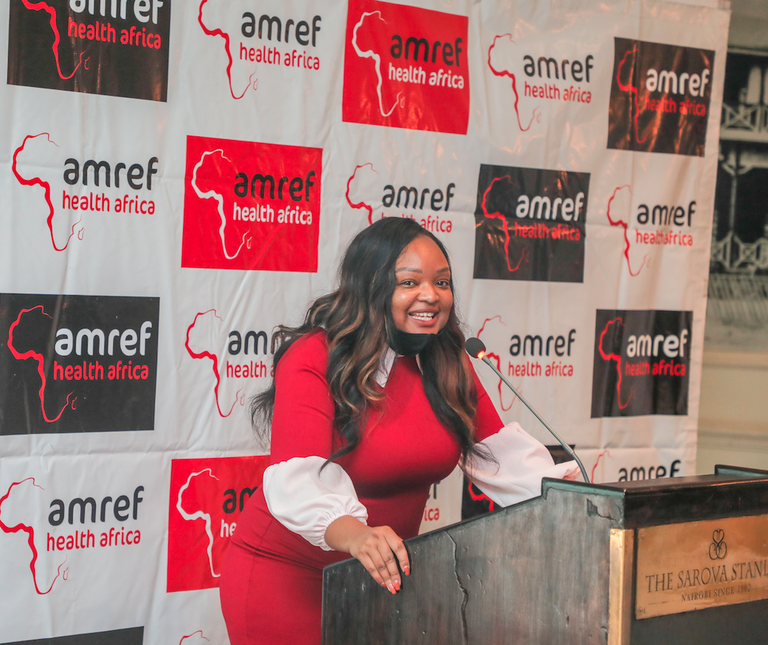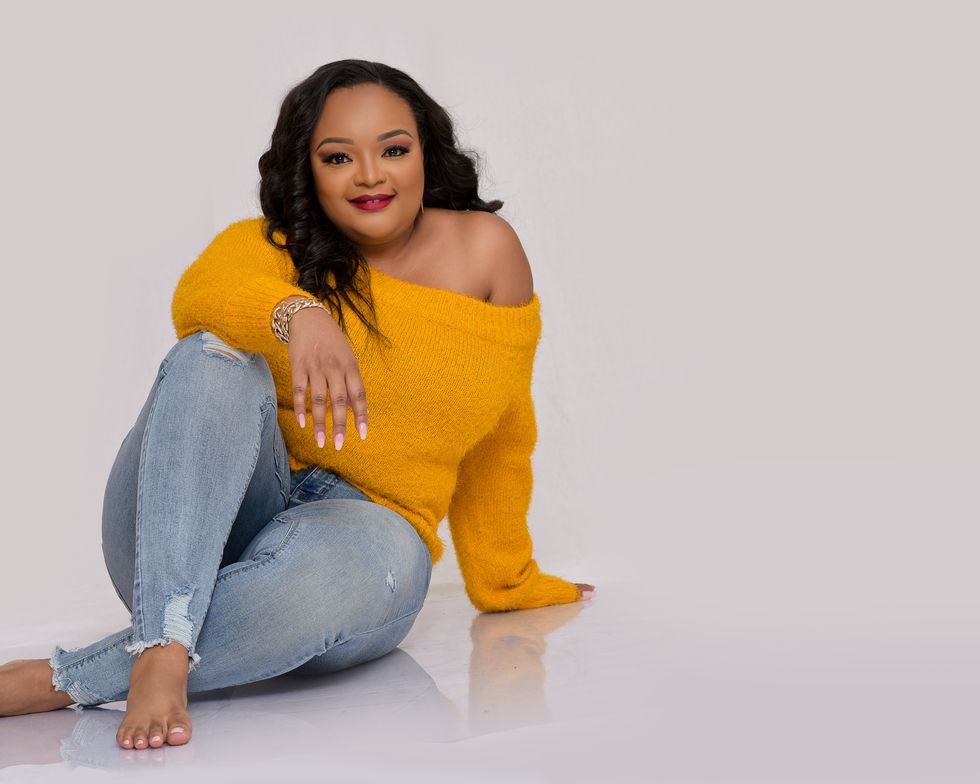– On the occasion of Africa Day, we interviewed Lizz Ntonjira, an enterprising Kenyan who talks about the continent’s youth talents in a book
At 34, Lizz Ntonjira is a force of nature. Fearless , one would say in English: one who is not afraid to take risks, to make room, to claim the right to see the glass half full, even when the world seems to be pushing in the opposite direction.
Kenyota, head of global communications at the NGO Amref Health Africa , two years ago launched the Lizz Ntonjira Network , a platform that offers mentoring and coaching for young people. Last year he published a book whose title sums up his philosophy: #Youthcan . It means that African youth can dream big, especially if they take inspiration from those who have already done so: like the 50 characters told in the volume.
But #Youthcan is also a message sent outside the continental borders to change the narrative of Africa: a young continent, rich in talents and innovative abilities, whose strengths are regularly obscured by a monothematic representation, which gives visibility only to misfortunes.
What prompted you to create your network and write the book?
I often hear about young people as a microwave generation that wants to get everything done quickly. But comparisons cannot be made with the past: the cost of living and society have drastically changed and if thirty years ago we aspired to become doctors, engineers, lawyers, now we are talking about professions, like the data scientist, which did not exist before. There is still discussion about the risk of hiring women, because they could get pregnant. Not to mention the fact that only we are asked at interviews if we intend to marry and become mothers. Another reason why I created the network is that I realized that in interviews women are much more talented and relaxed, perhaps because they are more used to telling about themselves: therefore males need to improve their soft skills. When I was a young girl I worked as a journalist I happened to meet very different people, from CEOs to pregnant 12 year olds. I realized that at all levels there is a lack of mentorship, because those who should be mentors have little time, while those who need guidance think that only famous people like Oprah Winfrey can be. On the other hand, a sister or a friend who has overcome challenges can also be sources of inspiration. My goal is to make young people understand that they are not alone and can be successful. Across Africa, whether English, French or Portuguese, the experiences and challenges we face are similar. We can learn a lot from each other.
How does the network work?
We have a mentoring platform where we bring those in need of advice together with the mentor that best suits their needs. We also do coaching on how to speak in public and acquire other soft skills. Most of the services are free, thanks to mentors, psychologists, trainers who volunteer. One of the reasons why I wrote the book is to give economic sustainability to my project, which will be financed with a part of the proceeds from the sale.
His main work, however, is in Amref.
Yes: as Global Communications Director I manage a team of communication professionals between Europe, USA and Africa, defining the communication strategies to implement our programs, advocacy and fundraising campaigns.

On 25 May the NGO will present the report
L’Africa Mediata 2021 , edited by the Pavia Observatory, on the representation of the continent in the Italian media and in the imagination of young people.
COURTESY PHOTO
What are the major obstacles that young Africans face in building their future?
The greatest is the exclusion from political discourse. We are cut off from the democratic process, which is ironic considering that over 60 percent of the African population is under 35. Corruption makes it difficult for young people to participate in political life: in key roles they are less than 1 percent. Only Rwanda is investing in the new generations; here in Kenya the ministers are over 50, while the average age of the inhabitants is 19.5 years. On the way we find many structural obstacles. Meanwhile, the scarcity of professional opportunities, whose roots are in the education system: school programs are not updated and do not reflect the current situation of the world of work. It is difficult to exercise the right to health, especially in the sexual field: not having access to contraception, girls risk premature pregnancies which impact their life trajectory. Laws penalize small businesses: the level of taxation is prohibitive for young people. Politicians are not interested inclimate change : given that in Africa there are problems with food, work, access to health, they say these are the priorities. They don’t want to understand that climate change affects many other issues; in thirty years they will no longer be there and the weight of the change will be all on us. Finally, political instability complicates things: in countries such as the Democratic Republic of Congo and Chad, many young people lose their lives. And from all over the continent they choose to leave. It is not their fault.
How can change be implemented?
Only young people can do it, deciding to take the bull by the horns and affirm their right to remain on the Continent and build their future here. In Amref I am more the young person to have a leadership role and I am often asked: “How did you do it?”. I reply that I believed in myself: it is fundamental. As well as having models to inspire you. I wrote #Youthcanin the hope that, reading the stories contained therein, someone will say: if they did it, why not me? We must be the drivers of change, speak up, use digital means. It is no coincidence that the title of the book is a hashtag: 80 percent of the people I tell the stories I have met online. I want to get the message across that digital media can be used in a constructive way, to create collaborations and projects. A small community is enough to change the world, you are never too small: a match can burn an entire forest. Since Rwanda has a leader who believes in young people, among the ministers there are in their thirties and many women: the nation is growing rapidly, both economically and socially. We will achieve our goals. It will take time, but it will happen.
How harmful is the distorted representation of them for Africa and its young people?
Very. Some time ago I spent four months in the US with the Mandela Washington Fellowship. When I happened to talk to children while doing social work, they couldn’t believe I was African. They asked me: “But are there cars in Africa? And do lions roam the streets? “. One day I went to a hairdresser and when she found out I was African she exclaimed: “I have a friend in Ghana!”, As if we were not talking about an entire continent of 54 countries. We are familiar with the geography of Europe and the United States because we study it: it would be important that Europeans and Americans also study the geography and the many cultures of Africa. Furthermore, we as Amref are extremely careful to use, for our communication, only images in which those who have benefited from our services appear to be an active subject, a champion of circumstances and not a victim. It would be desirable for all NGOs and associations to do the same. And when we need photos or filming, we are committed to using local talents: there is no need to send a cameraman from Europe to shoot a shoot in Kenya, there are good ones here too! In short, the distorted representation of Africa will change thanks to a better education system, but everyone can do their part. The media, for example, can stop focusing on tragedies and wars and give space to success stories, to what happens in the artistic and cultural fields. And there is so much to tell. the false representation of Africa will change thanks to a better education system, but everyone can do their part. The media, for example, can stop focusing on tragedies and wars and give space to success stories, to what happens in the artistic and cultural fields. And there is so much to tell. the false representation of Africa will change thanks to a better education system, but everyone can do their part. The media, for example, can stop focusing on tragedies and wars and give space to success stories, to what happens in the artistic and cultural fields. And there is so much to tell.
Available for purchase on Youthcan.Africa , the #Youthcan book tells 50 success stories across 22 African countries.
This article was first published on ELLE, Italia
